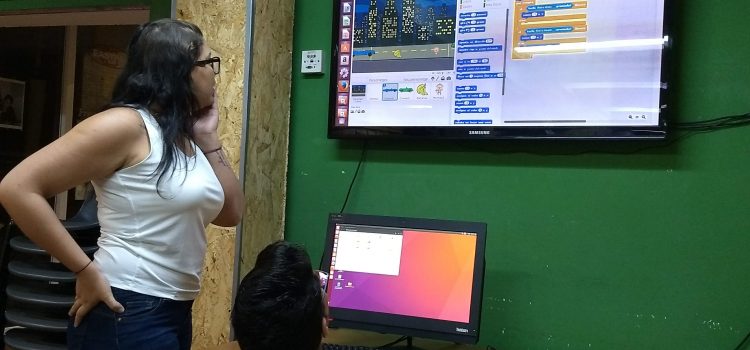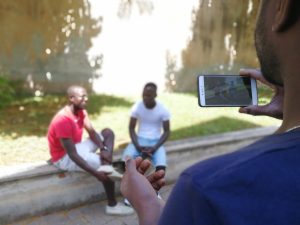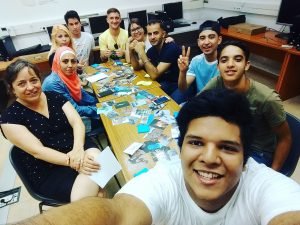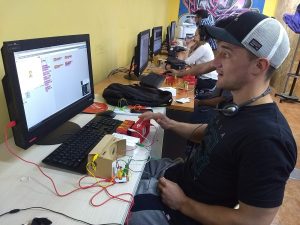
6 organizations have implemented the first Digital Welcome Beta in 5 different countries, with a good result. We are satisfied but still working on improving it before sharing the curriculum with all of you.
Our project, aimed at young asylum seekers, unaccompanied migrant children and refugees, has had an impact on 82 people in this first round, 52 of which have successfully completed the planned itinerary (a success rate of more than 66%). People from 19 different countries joined the Digital Welcome project.
Not easy, but successful
It has not been easy! Since the beginning, we were aware that our challenge was enormous, but that it would also bring us great satisfaction.
In the 6 countries that have been part of this pilot, participants went through the following phases:
-

Digital Journalism A very practical training of 100 hours distributed in 4 modules: coding, storytelling, digital journalism and soft skills.
- The organization of creative IT workshops, aimed at mixed population (migrants and nationals of the participating countries). These workshops were organized and led by the trainees with the help of the partner organizations. More than 220 people have participated (120 workshop hours).
- A final evaluation workshop that used storytelling as tool to reflect on the whole experience.
Throughout their itinerary, the participants have created many digital products, such as simple games made with Scratch (38 different games), personal digital stories (79 have been produced, although not all of them will be spread on-line out of respect for the participants) and video-interviews or website articles (24 journalistic products). All of these are necessary actions to experiment, learn and share their new knowledge, while they advance in their personal process of integration in the host country.
After this first implementation, the different partners – authors of the curriculum – are pleased with both the content and the process carried out, including the always necessary flexibility in the implementation in each territory.
Challenges we have faced

Undoubtedly one of the greatest difficulties has been to form the groups, trying to maintain a certain level of homogeneity in terms of age and sociocultural and linguistic background. In some participating countries, organizations that take care of the welfare of asylum seekers and refugees have collaborated in the recruitment, thus enriching the proposal.
Digital Welcome is an ambitious project that requires participants to have a high level of commitment, as well as a sufficient level of attendance of the classes, which is essential for the success of the training programme.
In addition, other difficulties related to language barriers have been encountered. However, the trainers have deployed very creative strategies to tackle them. Peer support has been one of the keys to good communication within the groups and this worked especially with the activities that have been proposed as part of the soft skills module.
Findings and lessons learned

The participants highly valued their participation in the Digital Welcome, and some of them seemed very interested not only in the continuity of the project, but also in collaborating directly in the next editions (either with the dissemination or as trainers and workshop staff). Isn’t this one of the best prizes that a training programme that seeks the empowerment of the participants can receive?
Many shared stories
In the next few days, many stories of the people who have participated in the project will be published online, since we are committed to their dissemination. You can see some of these stories in the Digital Welcome channel.
Italy Digital Stories Fondazione Mondo Digitale
Italy Digital Stories – CSF
Barcelona Digital Welcome Storytelling
Greece Digital Welcome Storytelling
Germany Digital Welcome Storytelling
Brussels Digital Welcome Storytelling
The next round of training is about to begin, and incorporates suggestions for improvement that each of the partners has made not only on the training content, but also on the processes. We try to make the programme better, in search of the best solution to achieve our aims.
And, of course, our work is yours: soon, you will have at your disposal the entire content curriculum and teaching methods so that, if you believe in this project as much as we do, you can implement it totally or partially in your work environments.
Stay tuned!
